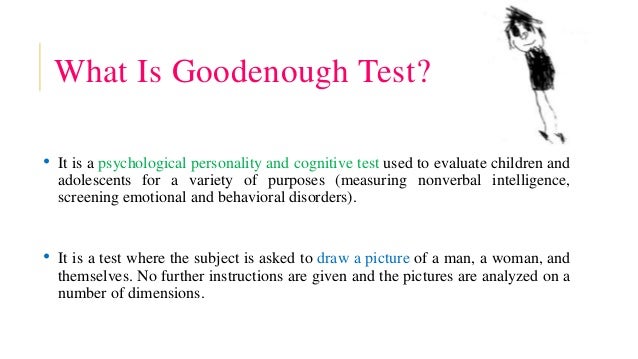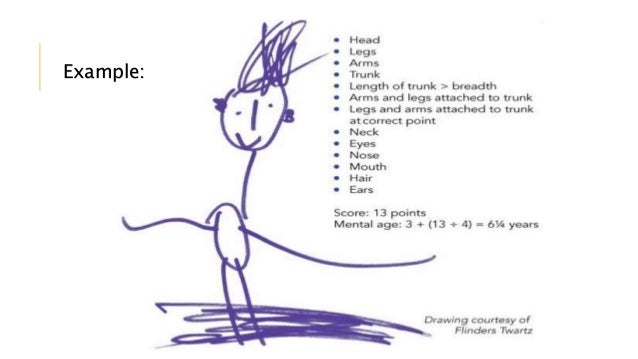
Dap Scoring Manual Test

Test Manual or Draw-A-Man Test (DAP, DAP test 0 is a psychological projective personality or cognitive test used to evaluate children and adolescents for a variety of purposes. Goodenough Harris Draw A Person Test Psychology Wiki. Goodenough Harris Drawing Test Manual. Goodenough Scoring or (Draw a person test) Goodenough scoring Page 9/25. The scoring manual gives a basis for estimating general intellectual level and goes into some detail concerning the assess- ment of personality and adjustment dynamics. Jollesl 3 published his method for the H-T-P in 1952. Hammer’s 14 suggestions concerning the H-T-P first appeared in 1954 and he collaborated in Buck’s revision of 1969.
| General Information on the Measure | |
|---|---|
| Purpose of the measure | The DAP assesses young people's strengths, supports, and other noncognitive factors critical for success in life. The DAP can be used to plan positive youth development programs or to identify areas in need of strengthening. |
| Main constructs measured | Intrapersonal competencies; Interpersonal competencies |
| Applicable grade levels | Ages 8-18 |
| Publication year for the most recent version | No information is available in the references reviewed. |
| Year originally developed | 2004 |
| Related measures | |
| Measure Administration | |
| Respondent | Student |
| Method of administration | Paper/Pencil, Digital |
| Number of items | 58 |
| Item format | Four-point Likert-type scale |
| Administration time | 10 minutes |
| Available languages | English, Spanish, and other languages including Albanian, Arabic, Armenian, Chinese, French, Japanese, Nepali, Portuguese, and Tagalog |
| Fee for use | Fee charged by developer |
| Credentials required for administration | |
| Scoring | |
| Overall score reporting | A total DAP score is reported. |
| Subscore reporting | Eight subscores are reported:
Scores are also provided by family, school, community, social, and personal contexts. |
| Scoring procedures | An online scoring service is provided by the assessment developers. |
| Interpretive information | Score reports include narrative information on areas of strength and growth, and they identify asset levels as challenged, vulnerable, adequate, or thriving. |
| Evidence of Technical Quality | |
| Populations for which technical quality evidence has been collected | Evidence was collected from two samples: 6th-12th grade students in Minnesota (N=13,00), and 6th-8th grade students in Oregon (N=1,110). Additional pilot-testing has occurred with international populations to validate contextualized and translated measures. |
| Reliability evidence | Internal consistency estimates averaged 0.81 for the eight asset category scales and 0.88 for the five context scales. Overall DAP score had an internal consistency of 0.97. Test-retest reliability was estimated over a two-week interval, and averaged 0.79 for the eight asset categories. Overall DAP score had a test-retest reliability of 0.87. (Search institute, 2016). |
| Validity evidence |
|
| Locating the Measure | |
| Obtaining a copy of the measure | search-institute.org |
| References | |
Search Institute, 'Developmental assets profile: User manual,' Minneapolis, MN, 2016a. Search Institute, 'User Guide for the Attitudes and Behaviors Survey,' Minneapolis, MN, 2016b. | |
| Notes | |
This measure is also reviewed in the AWG Guide. | |

Dap Scoring Manual Transmission


See Full List On Aasm.org
Measure summary updated October 3, 2018.